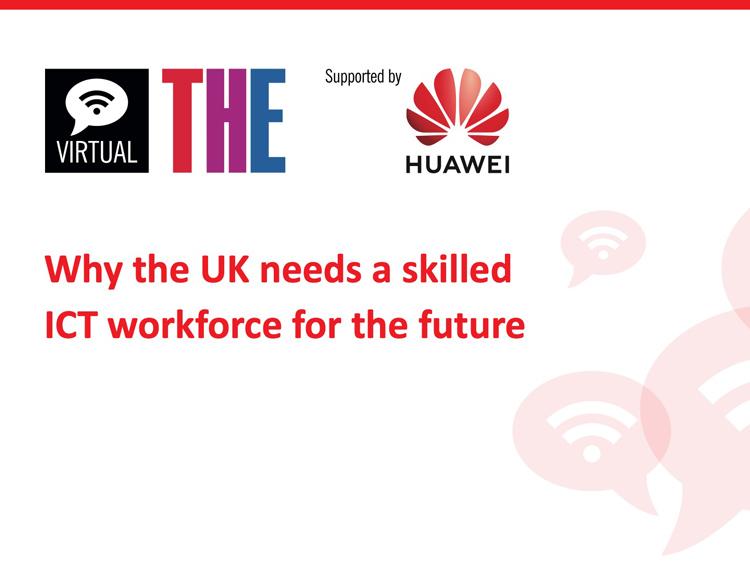The pace of change in today’s world can often feel overwhelming for our students – accelerating technologies, the lingering effects of the pandemic, geopolitical uncertainty and a climate crisis with no pause button.
When the future feels this unpredictable, how on earth do universities prepare their students for it?
Let’s be honest: traditional career paths are disappearing. Today’s students will likely hold jobs that don’t exist yet, use tools we haven’t quite invented and tackle problems we can’t predict.
So instead of trying to future-proof their degrees, we focus on future-proofing their mindset. Here are my top tips for doing so.
Top tip 1: Connect students to the future – early and often
At my university, we believe employability starts in year one. That means integrating students with hands-on “experiential” opportunities in industry from the start.
Inspired by cooperative programmes in the US and Alternance programmes in Europe, we get our students out into the workforce in their first year – experiencing e-commerce, logistics, research and data science – and then bring them back into the classroom and repeat the process.
- Cultivating a responsible innovation mindset among future tech leaders
- The power of partnerships in preventing regional talent drain
- Enhance students’ employability with career storytelling
This constant rotation between academia and industry exposes them to fast-changing environments and builds adaptability, resilience and relevance.
We also embrace Morocco’s gig economy by offering remote freelance projects through “Remote@AUI”, which connects our students with real clients through the generation of scientific reports, outbound communications and even business analysis – all while they’re still on campus.
We’re four hours from any major city, but that doesn’t stop our students from gaining professional experience in real time.
Top tip 2: Teach AI literacy – even if you’re still learning it
None of us are AI natives – we’re all learning as we go. But we must ensure that our students aren’t just passive users. They need to be savvy, ethical and creative AI thinkers.
We embed AI across disciplines. This includes teaching students how to use AI tools like ChatGPT and Claude responsibly – not to blindly trust outputs, but to question, validate and think critically.
On the flip side, some industries, particularly in finance, aren’t ready to allow AI at all owing to privacy concerns. So we further train students to operate with or without it.
One of our favourite strategies is bringing students and industry together in AI hackathons. Picture a group of bankers who might feel a little nervous about tech working shoulder to shoulder with students who are brainstorming AI solutions for societal challenges – from going cashless, through to supporting visually-impaired communities.
This kind of collaboration sparks real innovation, builds confidence and makes learning joyful.
Top tip 3: Don’t split employability and entrepreneurship
Some institutions treat these as separate tracks. We don’t, and have merged our employability and entrepreneurship office into one. Why? Because we believe students should discover their futures – plural – during their four years with us.
An entrepreneurial mindset is what employers value the most. It’s about taking ownership, showing initiative, curiosity and creative problem-solving – whether students are launching a start-up or working for a multinational.
One of our corporate partners is a logistics business that hires our entrepreneurial programme graduates to run operations, finance and logistics. They do this because our students have a track record of taking the initiative. They think like owners and get things done.
It’s important to encourage students to try new things – even if they fail. Start a business. Run a social campaign. Market a friend’s product. These experiences build the type of mindset today’s workforce demands.
Top tip 4: Develop transferable skills with intention
We’ve all heard the call for graduates with soft skills. But let’s be clear, there’s nothing soft about them. We prefer the term transversal skills, because they cut across industries, disciplines and roles.
Emotional intelligence, communication, collaboration and self-awareness are integrated into every corner of our curriculum through project-based and experiential learning. But behaviour change is harder than skill acquisition.
It’s one thing to teach teamwork, but it’s quite another to instil the courage required to take the initiative, or the resilience to handle rejection.
Employers consistently tell us that technical skills are similar across universities. What sets students apart is their behaviour in uncertain, high-pressure, team-based environments. So we coach them in real-world settings – not just theory.
Top tip 5: Train for interviews, not just résumé-prep
A résumé doesn’t get you the job – it just gets you in the door, if you’re lucky.
Our students learn to highlight real-world experience by living the following sentence: “Lead a team to develop logistics solutions using AI, while demonstrating time management and stakeholder communication.”
But where they really shine is in interviews. That’s where they link what they’ve done with what employers need. We run mandatory mock interview training as, just like public speaking, you can’t get good at it simply by reading about it.
Top tip 6: Show them how to design their futures
We’ve adopted a pair of tools from Stanford University that help our students chart a course forward: Design Your Future and Odyssey Planning. These aren’t just for undergrads – they’re fantastic for postgrads, too.
The first tool helps students map out where their passions, skills, opportunity and salary meet. The second asks them to draft three life paths: Plan A (the ideal), Plan B (the fallback) and Plan C (the wild card – if money and reputation don’t matter).
All of this assists in opening minds, building confidence and reminds students they’re not limited to a single path.
It’s not about one future. It’s about many future(s)
In a world this unpredictable, the goal shouldn’t be to train students for one job. It’s about empowering them to create and thrive in many potential careers. The future(s) – yes, plural – belong to those who can adapt, collaborate and reimagine. Let’s make sure our students don’t just survive these possibilities – but shape them.
Deborah Bartlett is chief employability and entrepreneurship officer at Al Akhawayn University.
If you’d like advice and insight from academics and university staff delivered direct to your inbox each week, sign up for the Campus newsletter.




comment